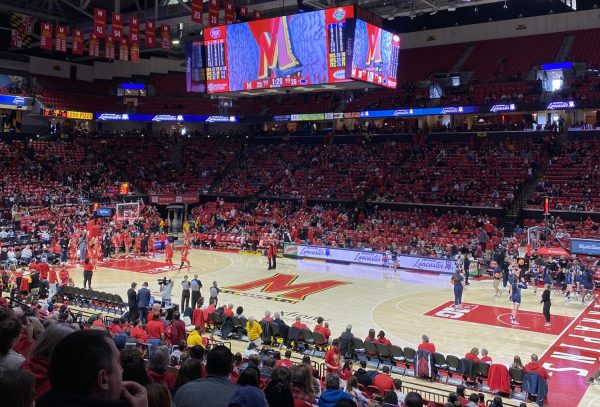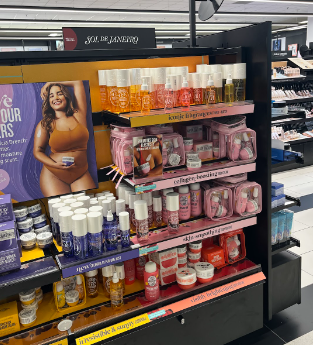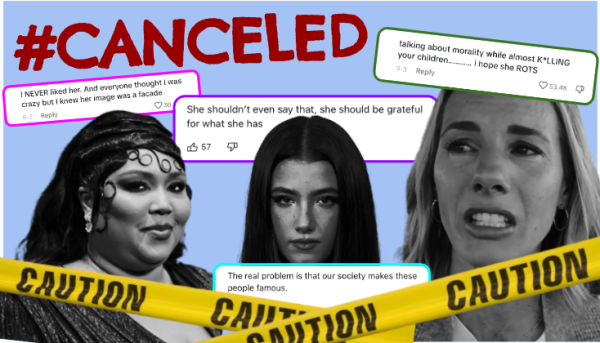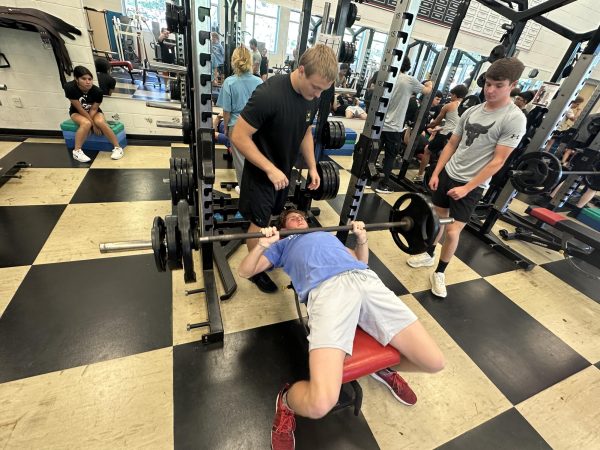Celsius, lunch detention for lateness and sleeping in class: Start school later, FCPS!
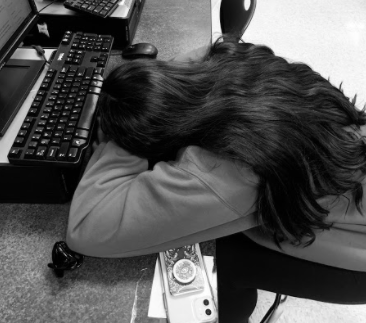
Students find it difficult to keep their eyes open in class.
March 25, 2022
Mostly everyone is aware of the issue concerning teens’ lack of sleep. What students and parents want to know is when we are going to do something about this crisis.
As kids go from elementary to middle to high school, the starting time for schools increasingly gets earlier. Not only is this a difficult transition, with the additional workload and after school activities sleep should be a priority. Teens need more sleep than younger kids because their bodies and minds are growing rapidly.
Inability to have a regular sleep cycle is made worse by the excess consumption of caffeine, stressors regarding school and personal life, and cumulatively getting too few hours of sleep. It’s a vicious cycle, and we’re all on this zombie wheel.
Caffeine overload
Teens consume unhealthy amounts of caffeine just to be able to make it through the day. It’s become a lifeline. Pediatricians and doctors suggest that those between the ages of 12 and 18 should have no more than 100mg of caffeine per day, but with 73 percent of kids consuming it each day at much higher amounts, it can be incredibly dangerous and alter their ability to stay calm and aware during school. Research indicates about 83 percent of teens drink caffeinated beverages daily, and nearly 96 percent consume them on occasion.
Students entering the school building in the morning are often carrying some source of caffeine in their hands: Dunkin’ iced coffee, a shaken espresso drink from Starbucks or a can of Monster.

Celsius, a popular drink among athletes and those looking for a caffeine fix has quickly become one of the most popular energy drinks consumed. One can (the serving size) has roughly 200 mg of caffeine, double the amount advised.
Comparing this to another popular energy drink, Red Bull (75 mg caffeine), Celsius has over twice the amount of caffeine. While drinking these in moderation can help promote a healthy lifestyle, adding a sizable amount of caffeine on top of a morning coffee or a can of soda can create over stimulation in the body and result in higher levels of anxiety and trouble sleeping.
The addiction of these popular new energy drinks is leading to teens developing a dependency of caffeine for its energization, to the point where they can’t make it through the day without it. Having to wake up between 5:30-6:30 every morning and work through a full school day of brain power takes a lot out of a person, especially as a teenager.
Athlete Ashley Hollar has fallen into the Celsius craze. “I love Celsius because it helps to give me energy before soccer practice. It also helps me to burn more calories when I go to the gym. I currently have 30 cans in my downstairs fridge and usually drink about 4-5 Celsius per week.”
At just 17 years old Hollar juggles work, AP classes, and sports year round and has begun to rely on energy drinks to keep her going on less sleep.
The broken sleep cycle
Sleep deprivation is not a new epidemic among teens. Stressors such as exams, upcoming games, social anxiety, and so many more that teens face every single day is hard enough on its own, but not getting a proper night’s rest makes the issue that much worse.
Speaking from personal experience, there have been times I would stay up all night studying week after week getting between 3-5 hours of sleep each night. Seven out of ten teens get under the recommended hours of sleep per night. That’s 70% of kids between 13-19 falling short of eight hours per night, not ideal statistics. Ultimately, despite all the work I had to put in I would end up performing significantly worse than I would have if I wasn’t suffering from chronic sleep deprivation. Trying to concentrate on an assignment while fighting to keep your eyes open is nearly an impossible task for most.
If so many recognize that it’s a serious problem, why is it not being talked about in school systems?
Educational effects
I can’t speak for all FCPS schools, but at Linganore students coming in late has always been a problem. While it’s frustrating for teachers and the attendance office to see a flood of late kids come in right after the bell having to give each of them a pass, the students’ situations need to be considered. Those who don’t take a bus have their own schedule however those who live farther from the school or have complicated home situations, going back and forth through parents’ houses need to wake up even earlier to be able to make it to the school before 7:30. 36.6% of all marriages in the US end in divorce. While that may seem like a very general statement, it is very relevant in this discussion. Teens who happen to be in these circumstances, partially living in households out of district are less likely to get to school on time. While this may not be the case for all high school students, I’ve talked to a few who can relate to this issue.
A junior at Linganore high-school, Kaileigh St. Louis often escapes the bell by a second because of the early start time. “Some days I commute from Damascus and others I have to come from Pennsylvania which is at least an hour drive. Having to switch between family members to find a ride and get ready in less than 30 minutes if I want to get a good sleep is stressful for me. I get home from soccer around 9 some nights and complete all my homework for the next morning, then get up at 5 A.M so I can be on time for class.”
When Covid rapidly spread two years ago, schools were forced to shut down and students became used to waking up on their own schedule and going to bed whenever they wanted. Skipping forward to the start of the next school year, a hybrid was introduced which began at a later time than usual and gave students one day a week where meets were optional. All factors considered, high-schoolers got into a routine with the adjustments and were able to be more well rested than they were previously.
Coming into this school year everything was back to normal time wise, we began at 7:30 once again and had classes every day of the week. This made waking up early that much harder with everyone needing to get their body used to the lack of sleep once again. Students coming into school late has reached its peak this year with lines almost out the door checking in tardy. The Linganore attendance office has confirmed it is a serious problem. At this school Mondays and Fridays are always the most busy with roughly 75-100 late passes having to be distributed. The rest of the week 25-50 students come in late on average.
Taking it into consideration
In February of 2018 The Frederick County Public Schools Board of Education began to look into the effectiveness of beginning the school day later, but didn’t have the chance to come to a decision. The costs of this change is a factor standing at about $150 more per student annually mainly concerning transportation. It would be a challenge rerouting the buses and altering the times of the bell through the schools, but the cost of not receiving the highest quality of learning for students is much greater. Starting school at a later time, even by 30 minutes, will overall do more good than harm for staff and students in FCPS.




